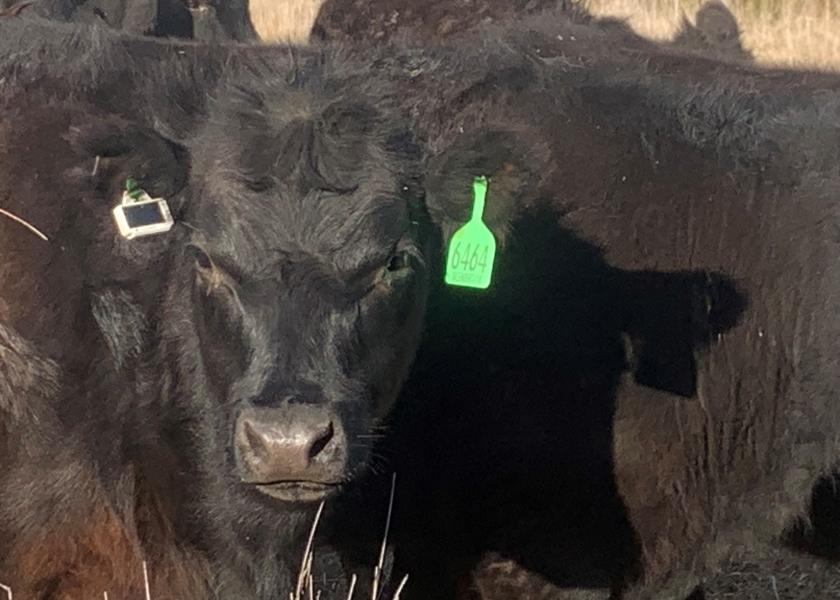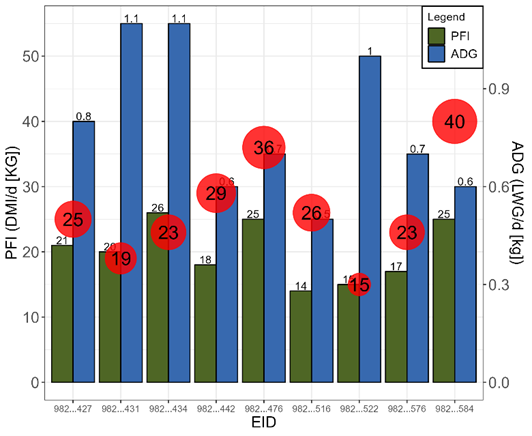Automated Satellite Measuring of Inputs for Heritable Traits in Grazing Cattle

Agtech is nothing new to most producers in the world but combining their capabilities to drive better performance and outputs by determining and controlling inputs while grazing in extensive systems is new. The challenges of lack of available human resources and skills capabilities is driving the further adoption and use of technologies combined to provide better and more timely insights for improving productivity and profitability.
Not all cattle are built alike.
Feed efficiency is a critical factor that significantly influences the productivity, sustainability, and profitability of extensive livestock systems. While there are differences between temperate and tropical extensive systems, traditionally, these systems have been disadvantaged due to a lack of real-time data at the individual animal level under real world grazing conditions. The inability to differentiate performance within the same herd or paddock posed a significant challenge to improvement. Intensive systems, such as dairy farms and feedlots, have been harnessing technology to obtain these insights through multiple accessible solutions for many years however that same level of detail in extensive systems has been elusive for extensive systems, until now.
Combining innovative technologies to find efficient animals
Utilising Ceres Tag, a state-of-the-art direct-to-satellite livestock monitoring platform with a built-in Pasture Feed Intake (PFI) algorithm exclusively licensed from CSIRO, coupled with the Optiweigh satellite connected mobile livestock weighing system, successful gathering of individual animal feed efficiency data in the field, in real-time, has been achieved and both are commercially available technologies for any size operation.
The combination of these pioneering technologies has enabled producers to amass, analyse, and share crucial feed efficiency data with staff and supply chain managers to shed light on the performance of cattle under grazing conditions and make claims for genetics, carbon, and value.
Bill Mitchell, CEO and Founder of Optiweigh commented “while weighing cattle to understand the outputs is crucial, combining this knowledge with the animal intake over a known period of time for your herd is incredibly powerful for improving stocking rates, heritable genetics and profitability”. Mitchell further commented “with changing environments and the ability to differentiate drought tolerant animals to withstand drier conditions is a game changer for the global livestock industry”.
David Smith CEO and Co-Founder, Ceres Tag also commented “having intake information available through grazing time and knowing the location of where the intake is happening together with the weight gain over the same period of time provides the opportunity to not only understand your phenotype of individual cattle but also the location of the where natural capital being utilised and where it needs improvement to drive value and profitability of your entire operation”
While the animal's PFI may vary in response to weather events, handling, temperate vs tropical and social interactions, the average daily weight gain varies more suggesting that continuous monitoring provides a nuanced view of feed efficiency compared to traditional weight measurements by understanding the inputs while grazing.
The valuable insights guide the optimal protocols for collecting precise Feed Conversion Efficiency (FCE) data under comparable grazing conditions within a producers herd and creating greater productivity, sustainability and profitability of operations while providing optimal care for natural capital.
The future of livestock Management
Combining more technologies such as satellite pasture assessment through platforms like Cibo Labs, will gain further value for producers and supply chain players. Satellite enabled Agtech with unlimited range and capabilities is increasingly being adopted within the industry as demographic change occurs amongst digital native generations with further education who genuinely want to do things differently, more efficiently while maintaining the traditions of the lifestyle of living on the land. Using more technologies like Ceres Tag and Optiweigh will catalyse and transform the livestock industry to be more profitable. The promise of heightened productivity, further steps towards sustainability, and enhanced profitability are all drivers for the change and the bright future of a more productive industry. The insights gained will serve as a key for refining breeding programs, and optimizing performance, all while contributing to a greener future for small, medium and large-scale livestock operations.

Feed efficiency values captured using the combination of Ceres Tag and Optiweigh technologies. Angus cattle on the same pasture at the same period showing significant phenotype difference in feed conversion efficiencies. Red bubbles denote feed conversion efficiency, lower is better.







